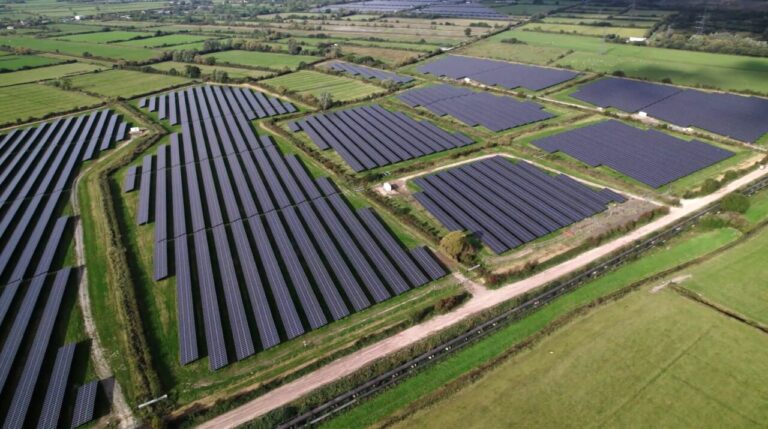“The biggest problem with the solar industry right now is the grid and the workforce,” said Mark Wakeford, chairman of EvoEnergy, when discussing the role of the Solar Taskforce and some of its key findings to date.
Speaking at an industry event today (April 30), Wakefield, chair of the Taskforce’s skills group, highlighted that the electricity grid needs further investment and support to enable sustainable generation technologies, such as solar, to power the energy system decarbonization.
Lawrence Slade, CEO of the Energy Networks Association, added to this debate, stating that while the transmission input capacity (TEC) queue has now reached more than 700 GW, not all of these projects will be needed to achieve a net reach zero.
“We hear a lot about the queue, where more than 700 GW are currently waiting to be connected. This is much higher than what we need. “There are a lot of reforms underway right now that will free up capacity – some of which are getting connection dates almost six and a half years earlier,” said Slade.
“The Taskforce really puts that into perspective.”
As Slade states, the Solar Taskforce is clearly working to ensure that grid connection delays are reduced and that both solar and battery storage projects can be connected to the grid in a timely manner, especially through the newly introduced ‘first ready, first connected ‘-approach. to connections, carried out by National Grid ESO.
Solving the skills gap riddle
Another major obstacle in the solar energy sector is the skills shortage and, more importantly, encouraging younger academics to enter the renewable energy and solar energy sector.
Skills have become an important part of the Taskforce’s activities. As mentioned before Solar energy portalthe Taskforce skills group aims to identify how to develop and deliver the skills and training needed for the future solar workforce in the short and long term.
On this topic, Wakefield said: “Staffing levels in the sector used to be difficult, but now professionalising the roles is. Professionals are needed to deliver a competent quality product for the industry. We need to get people qualified for this.
“We still have a lot of work to do to identify qualifications and routes to qualifications for the sector.”
Slade has also contributed to the discussion about jobs in the solar and renewable industries. He specifically emphasized that a job in the renewable energy sector is a ‘career for life’, highlighting the importance of helping new generations of workers understand the potential of building a career in the sector.
Developing a domestic supply chain
Another key discussion point from Chris Hewett, CEO of Solar Energy UK, was around creating a domestic solar supply chain.
“We will not have factories for gigawatt-scale solar panel production, but there is a lot of potential in developing the domestic supply chain. This is something we can build,” Hewett said.
Creating a supply chain for solar energy and renewable technologies could be key to supporting the UK’s net zero ambitions while strengthening the economy. By supporting domestic manufacturers, renewable technologies, such as battery storage, can be developed and manufactured in the country, reducing the country’s sensitivity to geopolitical tensions.
This has been a major discussion point in the sustainable industry. Late last year, the Royal United Services Institute (RUSI) argued that the Britain is in danger of becoming “too dependent” on China for the transition to renewable energy sources.
According to the report, aptly named New energy supply chains: is Britain at risk from Chinese dominance?RUSI argued that China has a “near monopoly” in the mineral processing supply chain, holding a market share of as much as 80-100%. Rare earth metals are another supply chain that China dominates, and they are often used to produce permanent magnets in wind turbines and electric vehicles (EVs).
Batteries, wind turbines and solar energy are also mentioned as technologies that Britain is heavily dependent on China to develop. This has raised concerns about energy security, especially in the wake of Russia’s invasion of Ukraine, which saw energy prices skyrocket around the world due to a reduction in the supply of gas and oil from Russia.
For the solar industry, China also has a “near monopoly” on the production of polysilicon, silicon wafers and silicon cells, RUSI said. There are also very high concentrations of up to 60-80% market share in many other elements of these supply chains.
Supporting the creation of domestic supply chains could only strengthen Britain’s energy independence while creating domestic green jobs.
Solar Power Portal’s publisher Solar Media will host the British Solar Summit on June 4 and 5, 2024 in London. The event will explore Britain’s new utility and rooftop solar landscape, look at the opportunities within a GW+ annual market, and much more.


